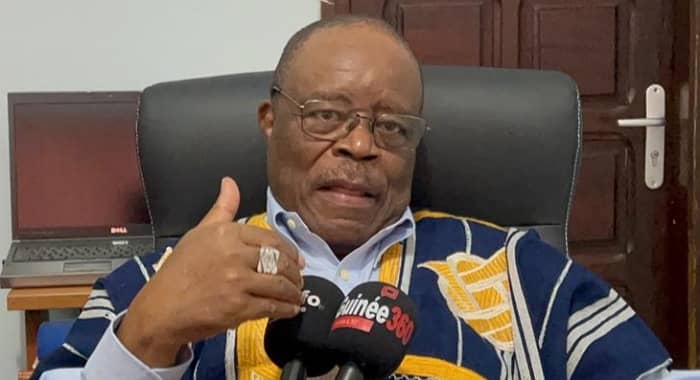
Guinea’s political climate is heating up after the provisional results of the biometric voter registration process revealed nearly 7 million registered voters.
The announcement, made during a public presentation of statistics from the National Register of Physical Persons (RNPP), has drawn strong criticism from opposition leader Édouard Zoutomou Kpoghomou.
The Union for Democratic Renewal and Progress (UDRP), led by Zoutomou, was represented at the Saturday event by its administrative secretary.
According to the data presented, around 9 million Guineans aged 10 and above have been enrolled in the national database, including 6,748,923 identified as eligible voters both domestically and in the diaspora.
But Zoutomou raised red flags, questioning the integrity of the process.
“Already, the circulating figures—close to 7 million people registered—are raising great concern, considering the conditions under which this census was conducted,” he said, alleging that the operation was poorly organized and fraught with irregularities.
He criticized the selective approach of the registration drive.
“Why were only individuals aged 10 and above targeted? A proper census should cover the entire population.
When you start arbitrarily segmenting, it suggests an intent to use the data for other purposes,” he said.
Prime Minister Bah Oury had earlier hailed the RNPP as a “decisive turning point in building a modern civil state.” But Zoutomou dismissed that praise, suggesting it was politically motivated.
“Mr. Bah Oury doesn’t speak from conviction.
He’s in a mode of political survival. He knows his claims don’t hold water. When one is honest with oneself, there are statements that simply cannot be made,” Zoutomou countered.
Even more concerning, he challenged the legitimacy of the resulting electoral roll.
“I personally participated in the census.
On the ground, it’s clear that only 15 to 20 percent of the electorate was actually registered. That figure is far from reality.
This opens the door to manipulation and ballot-box stuffing,” he warned.
Zoutomou, a former presidential candidate, referenced past elections—specifically 2016 and 2018—where he alleges diaspora registration was deliberately curtailed.
“The more you restrict the number of registered voters, the more room you create for artificial results. What we’re seeing today is nothing new; it’s a well-known strategy,” he said.
Calling for nationwide vigilance, he stressed the need for collective action.
“Guinea stands at a crossroads. If the current manipulations, backed by a campaign of intimidation, continue, we’re heading straight into instability.
It’s time for every citizen and every authority to grasp the seriousness of this moment and act accordingly,” he urged.
Zoutomou emphasized unity and fairness:
“Guinea belongs to all its children, without distinction.”
As for the UDRP’s participation in upcoming elections, Zoutomou remained non-committal.
“Yes, we registered, because it’s a civic duty.
But that doesn’t mean we’ll contest the elections. The decision will be made internally. We will not endorse an election whose outcome is already predetermined.”



